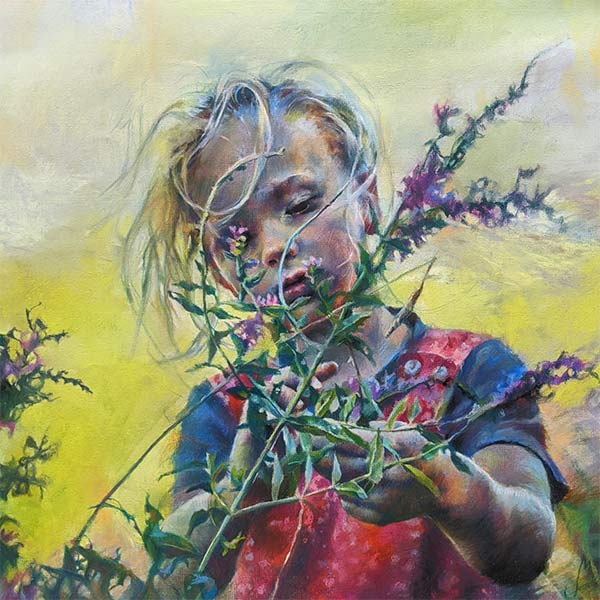Subtotal: $
Checkout
Children at Play
The inventor of kindergarten explains the importance of free play for a child’s development.
By Friedrich Froebel
September 12, 2024
From Where Children Grow: Wisdom for Raising Resilient Humans from the Inventor of Kindergarten.
Even if I have discovered nothing new in children’s education – as some people claim – I have made an important contribution by insisting on time for play. It is in play that children’s energies can flourish, neither strained by too-early lessons nor rusting through lack of use.
Play is the highest expression of human development in childhood, for it alone is the free expression of what is in children’s souls…. It gives them joy, freedom, contentment, and peace with the world. Children who play well of their own accord, quietly persisting until they are physically tired out, will develop as efficient and determined individuals, ever ready to make sacrifices for the good of themselves and others. There is no lovelier sight than that of a child absorbed in play….
Childhood play is never trivial; it is deeply significant. Parents need to cherish and encourage it, for in their free choice of play children reveal the future life of their mind to anyone who has insight into human nature.
The forms of play at this age are the core of a child’s whole future, since in them the entire person is developed and revealed in the most sensitive qualities of his mind. A person’s life to its very end has its sources in this period when it is determined whether it shall be rich or poor in achievement, and whether he will be gentle or violent, show apathy or intelligent insight, create or destroy. His connections with family and society, with nature and God, all depend on his mode of life at this time when these relationships are in complete unity. So it is that he scarcely knows which he likes best – the flowers, his own delight in them, his parents’ pleasure when he presents them, or his vague intuition of God who gave them.
The degree of satisfaction experienced in play determines the style and character of a child’s future life. If this contentment is deeply grounded, other blessings of life will follow. It is a particular purpose of play to give such contentment and stability to the child.
People think children are only seeking amusement when they play. That is a great error. Play is the first means of development of the human mind, its first effort to make acquaintance with the outward world, to collect original experiences from things and facts, and to exercise the powers of body and mind.
Play is the great game of life itself in its beginnings. Hence the intense seriousness often observed in the attitude of children at play.

Justine Maendel, The First, 2022.
What busy tumult among those older boys at the brook down yonder! They have built canals and sluices, bridges and seaports, dams and mills, each one intent only on his own work. Now the water is to be used to carry vessels from the higher to the lower level, but at each step of progress one trespasses on the limits of another realm, and each one equally claims his right as lord and maker, while he recognizes the claims of the others. What can serve here to mediate? Only treaties, and, like states, they bind themselves by strict treaties. Who can point out the varied significance, the varied results, of this play of boys? Two things, indeed, are clearly established which proceed from this spirit of boyhood: the playing boys will make good pupils, intelligent and quick to learn, quick to see and to do, diligent and full of zeal, reliable in thought and feeling, efficient and vigorous; and those who have played thus are efficient men, or will become so.
Play, therefore, must not be left to chance. Because they learn through play, children learn willingly and learn much. So play, like learning and activity, has its own definite period of time and it must not be left out of the elementary curriculum.
What children imitate they begin to understand. Let them represent the flying birds and they enter partially into the life of birds. Let them imitate the rapid motion of fish in the water and their sympathy with fish is quickened. Let them reproduce the activities of farmer, miller, or baker and their eyes open to the meaning of such work. In a word, let them reflect in their play the varied aspects of life and their thought will begin to grapple with the significance of each.
Three types of free play occur during this period: children imitate real-life scenarios, they reenact what they’re learning in school, and they engage in spontaneous open-ended play, pursuing their plans with all kinds of materials – inspired by the materials themselves or by some idea hatching from within. Whatever the type of play, their activity flows from their inborn energy and enthusiasm.
Do not disturb children’s free play. You would do better to look the other way, unless you can enter into the spirit behind it. In their play they are not dragging what is holy in the dirt; no, their play is a seed, a way of grasping for life’s meaning. How can children learn to cherish what is holy, both now and throughout life, if you do not allow them free expression in innocent play? They should be able to express what comes from their heart without being disturbed by an uncalled-for look or comment.
Let the world laugh at me now as much as it likes for my insisting upon and arranging children’s play; it will one day acknowledge that I am right.
Already a subscriber? Sign in
Try 3 months of unlimited access. Start your FREE TRIAL today. Cancel anytime.






